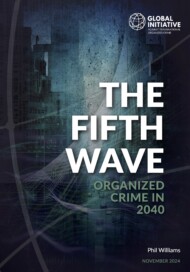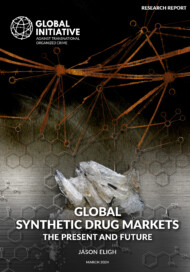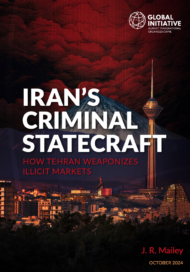Posted on 14 Nov 2024
By 2040, organized crime may thrive like never before, exploiting climate crises, geopolitical conflicts, and technological advancements. Our latest report reveals a chilling forecast where criminal networks operate as shadow governments, shielded by authoritarian regimes and empowered by rapid technological evolution.
This “fifth wave” of organized crime, as coined by author Phil Williams, will capitalize on scarcity markets, leveraging disruptions in essential resources like water, minerals, and energy caused by climate change. Criminal networks are expected to infiltrate legitimate markets, blurring lines between lawful and illicit activities and using scarcity as a driving force for growth.
The report suggests that by leveraging emerging tools such as artificial intelligence, autonomous vehicles, and 5G technology, criminal organizations will achieve new levels of sophistication, making it difficult for law enforcement to counter their reach and resilience. Meanwhile, geopolitical tensions are likely to exacerbate the situation, as some authoritarian regimes utilize criminal networks as extensions of state power, offering them safe havens and strategic support in exchange for destabilizing activities abroad.
The findings raise urgent questions about global readiness to combat organized crime’s possible evolution. “The Fifth Wave” challenges policymakers, law enforcement agencies, and international organizations to rethink their approach to organized crime in a rapidly shifting world. It underscores the importance of proactive strategies that go beyond traditional crime-fighting tactics, advocating for comprehensive international collaboration, adaptive policy-making, and innovative technology to address this deeply entrenched threat.
As crime increasingly infiltrates legal economies, emerging as a powerful economic and social force, international collaboration and innovative strategies will be vital to mitigate this emerging threat. This threat requires an unprecedented global response.




